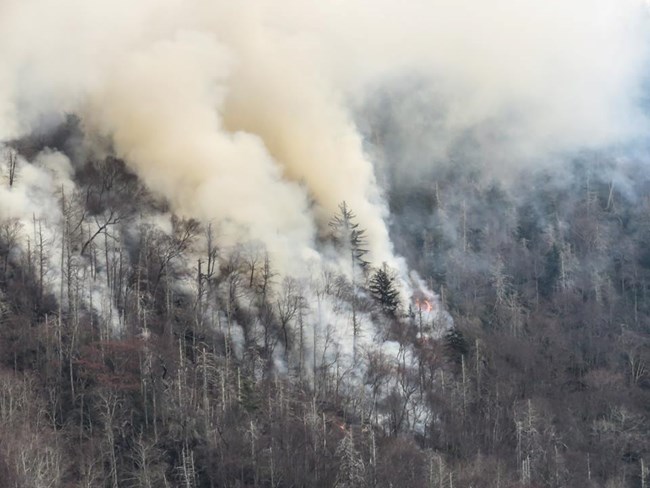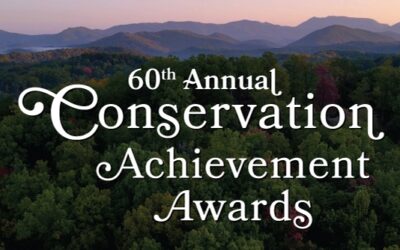Tennessee Wildlife Federation is engaging in conservation policy at the federal level like never before. Because of the nature of federal legislation and congressional processes, our work comes largely through regular engagement of Tennessee’s congressional delegation, as well as strategic alliances with like-minded organizations. These organizations include National Wildlife Federation, Congressional Sportsmen’s Foundation, Boone and Crockett Club, Quality Deer Management Association, National Wild Turkey Federation, and many others.
This collaborative, relationship-based approach makes the Federation more effective in addressing the issues that are impacting Tennessee.
While there are many issues that are introduced in each Congress, below are some highlights.
Quick Links to the Issues
- Better Forestry Funding through 2018 Omnibus Package
- Chronic Wasting Disease Support For States Act (H.R. 4454, S. 2252)
- Recovering America’s Wildlife Act (H.R. 4647, S. 3223)
- Funding of Habitat-destroying Yazoo Backwater Project (Section 433)
Bill: Better Forestry Funding through 2018 Omnibus Package
The Federation’s Position: In Favor
Note: While the Omnibus Package funded large portions of the federal government, our focus is the many provisions designed to benefit wildlife conservation, energy, and the environment, including a wildfire funding fix for the Forest Service.
Status: Passed
Problem: In 2017, more than 60 percent of the U.S. Forest Service’s budget went to fighting fires. This is anticipated to grow because of more people moving to the edge of unoccupied land, increased fuel buildup, intensifying droughts, and more. With notable exceptions, such as the Gatlinburg fire, wildfires are largely a Western issue. However, Western fires drain the Forest Service’s ability to properly manage its forests in Tennessee—including Cherokee National Forest and Land Between the Lakes National Recreation Area—degrading wildlife habitats and recreational opportunities.
Importance: Starting in 2020, firefighting agencies will be able to access $2-3 billion to fight wildfires in addition to the $1.4 billion currently allotted every year. In particularly high risk years, the spending bill allows the Forest Service to clear underbrush and small trees—an accepted forestry best practice to minimize fuel—on plots of land smaller than 3,000 acres without having to go through a lengthy environmental review.
The Federation’s Role: We have long been working on a fix for wildfire funding. This work led, as part of a large coalition, to the forest wildfire funding fix being included in the omnibus bill.
Bill: Chronic Wasting Disease Support For States Act (H.R. 4454, S. 2252)
The Federation’s Position: In Favor
Status: Referred to House and Senate committees and subcommittees
Problem: Chronic Wasting Disease (CWD) is a highly-contagious neurological disease that infects deer, elk, and other cervids. It is similar to mad cow disease. CWD has been confirmed in 25 states, including our neighbors Arkansas, Mississippi, Missouri, and Virginia. Efforts to address the issue vary greatly from state to state. There is no known cure and it is a major threat to the nation’s deer population along with the traditions and conservation funding that population supports.
>>READ MORE: Chronic Wasting Disease in Tennessee
Importance: The bill has three main components that would support state and tribal efforts to develop and implement management strategies to address CWD, to support research on the cause of CWD as well as methods to control the further spread of the disease. With better research, funding and ways to cooperate, states will be able to better fight CWD within and across their borders.
The Federation’s Role: The Federation has worked with national partners and with National Wildlife Federation to support this legislation and provide information to our congressional delegations regarding the critical need of this bill. Other supporters include: CWD Alliance, National Deer Alliance, Association of Fish and Wildlife Agencies, Quality Deer Management Association, and Congressional Sportsmen’s Foundation.
Bill: Recovering America’s Wildlife Act (H.R. 4647, S. 3223)
The Federation’s Position: In Favor
Status: Versions introduced in the House and Senate
Problem: According to its State Wildlife Action Plan, Tennessee has more than 1,400 species of plants (i.e., habitat) and wildlife in need of management. But current funding is sporadic and chronically low, meaning these species risk becoming threatened or endangered. Proactive management now is substantially more effective and cheaper than restoration efforts once a species is threatened or endangered.
Importance: While the House and Senate bills are somewhat different, the legislation could generate $20.8 million in recurring funding for Tennessee Wildlife Resources Agency (TWRA) to fund the conservation of nongame species in need of management. This would enable methodical management of species, creating meaningful, long-term gains for populations’ health. The bill represents the single most important piece of wildlife legislation to come to fruition in the past 20+ years in Congress. If passed, the impact of this legislation will be of the scale of other highly successful fish and wildlife funding efforts.
Bill: Funding of Habitat-destroying Yazoo Backwater Project (Section 433)
The Federation’s Position: Oppose
Status: Funding excluded in final bill
Problem: The Yazoo Backwater Pumps Project in Mississippi is a $220 million Army Corps of Engineers project that would drain and damage 200,000 acres of ecologically rich wetlands in the Mississippi Delta. The draft of a Senate Appropriations Committee Appropriations Bill for fiscal year 2018 directed the Corps of Engineers to immediately initiate construction of the Yazoo Backwater Project. This threw out the long-standing legal prohibition of the project issued by the George W. Bush administration.
Importance: Wetlands are disappearing nationwide and serve numerous important roles, from cleaning water to recharging underground aquifers. Mississippi Delta wetlands are critical wildlife habitats, providing high-quality stopover habitat for large numbers of ducks, geese, shorebirds, and other migratory birds that eventually come to Tennessee. In addition to destroying wetlands, the bill would have striped away all existing and future legal protections, as well as eliminated any administrative and judicial review. It also committed the federal government to paying for the entire project—regardless of funding limitations or competing priorities—taking money away from high priority projects across the nation, including Tennessee.
The Federation’s Role: The Federation, along with a coalition of partners nationwide, strongly opposed the Yazoo Backwater Pumps Project rider. Given this opposition, it was not included in the final appropriations bill.




